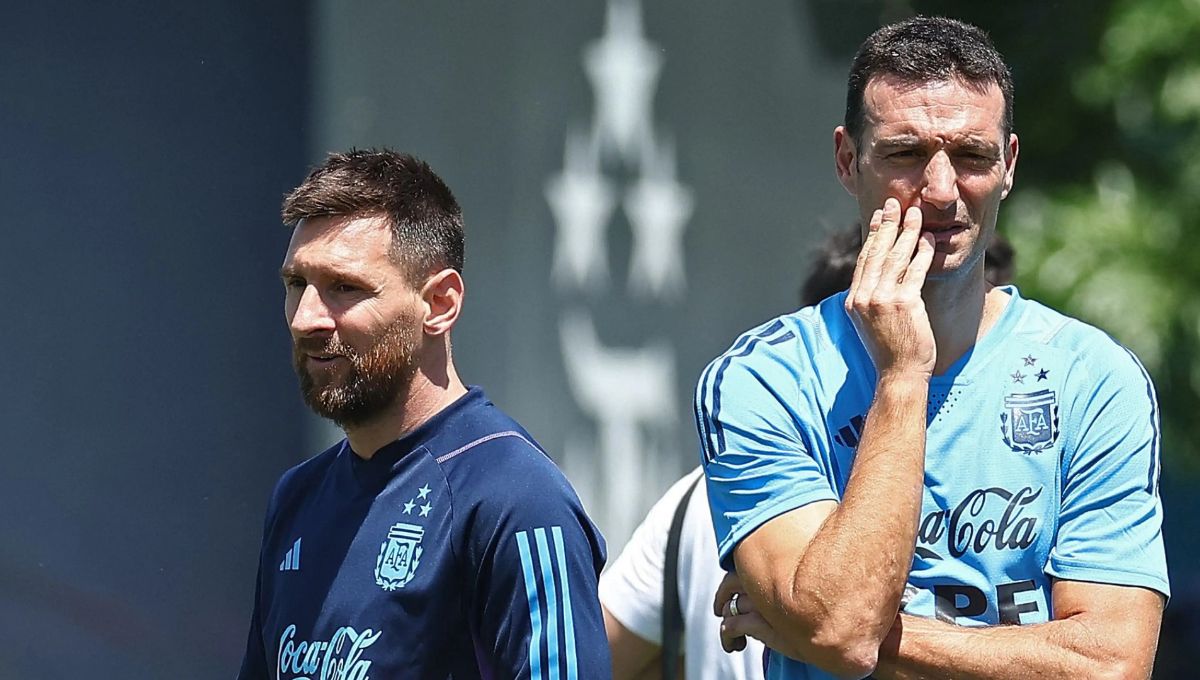There is a worrying trend in modern football. The basic beauty of the game, i.e. creativity, individual skills, and surprising moves are seeming to be fading away.
This sentiment has been shared by Lionel Scaloni, the mind behind Argentina’s recent successes, who says the declining quality of players is a concern that extends from the grass root levels to professional football.
The Over-Structured World of Youth Football
Scaloni points out a critical issue in modern football: the overbearing structure and information overload plaguing young players.
He observed this in Spain, where his kids play.
From a tender age, kids are fed with tactical instructions and data-driven feedback. They’re told when to pass, where to move, and how to play, leaving little room for personal flair or instinctual play.
Scaloni worries that if a young Lionel Messi were subjected to this rigid approach, his extraordinary talents might have never flourished.
Football’s Shift to a Data-Driven Approach
Today’s football is totally different from the days of Pele, Maradona, and Zidane.
The game has become heavily data-centric. Clubs and analysts are obsessed with creating the ‘perfect’ tactical system and the ‘elite athlete’.
This shift is trickling down to youth football, where the focus is more on meeting data benchmarks than nurturing creativity. Players are increasingly seen as cogs in a tactical machine rather than artists on a canvas.
The Robotic Nature of Modern Players
Scaloni’s observations are reflected in the highest tiers of the sport. The Champions League, once a showcase of footballing brilliance, now often feels like a tactical chess game devoid of the unscripted magic that once defined it.
In contrast, tournaments like the African Cup of Nations (AFCON) continue to captivate audiences with their raw, unfiltered expression of football.
This disparity highlights a concerning trend: the rise of the ‘robo-athlete’, players who excel in executing predefined roles but lack the flair and creativity that make football truly enchanting.
Recalling Football’s Greats: The Essence of Genius
When we think of football legends like Cruyff, Ronaldinho, and Iniesta, what stands out is their genius – their ability to produce moments of unforeseen brilliance.
They were masters of out-of-the-box thinking and had a special knack for making decisive, unpredictable moves on the field.
This unpredictability, the spontaneous bursts of genius, is what made millions fall in love with the game.
The Call for a Return to Football’s Roots
Scaloni’s message is clear: Football needs to rediscover its soul. While tactics, fitness, and data are undoubtedly important, they should not overshadow the fundamental joy and creativity that football is all about.
Young players should be encouraged to express themselves, to play with freedom, and to make mistakes.
It’s through this unstructured play that true footballing genius is nurtured.
As we move forward, it’s crucial for coaches, clubs, and governing bodies to strike a balance. The future of football depends on our ability to foster environments where creativity and tactical discipline coexist.
Only then can we hope to see the rise of players who not only excel in their roles but also captivate us with their unpredictability and ingenuity – the true essence of football.
Related Articles:
- 5 Best Streets Won’t Forget Players Of All Time
- Is Football Losing Its Popularity?
- Best Football Prodigies of 2024
